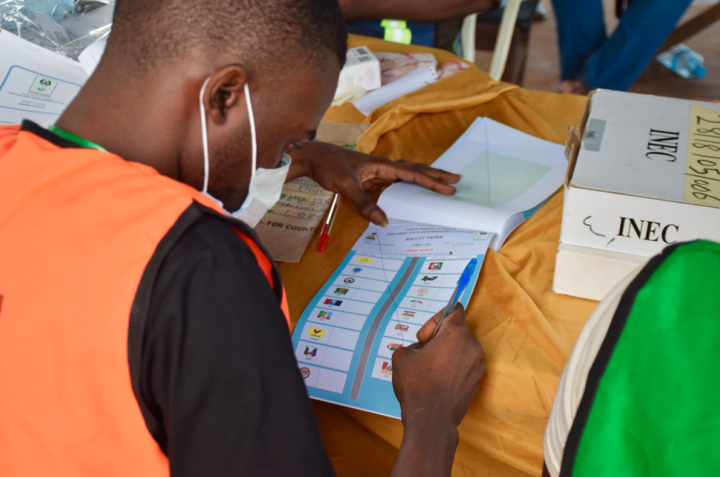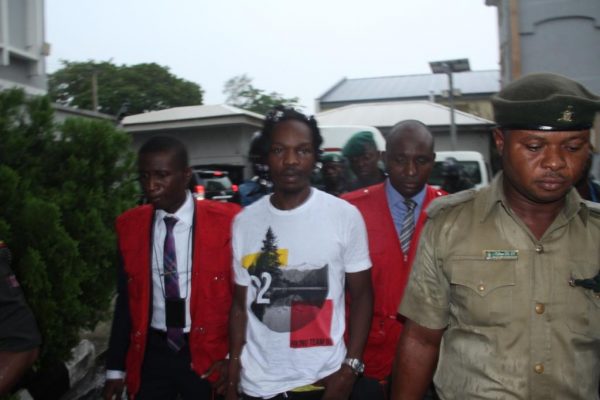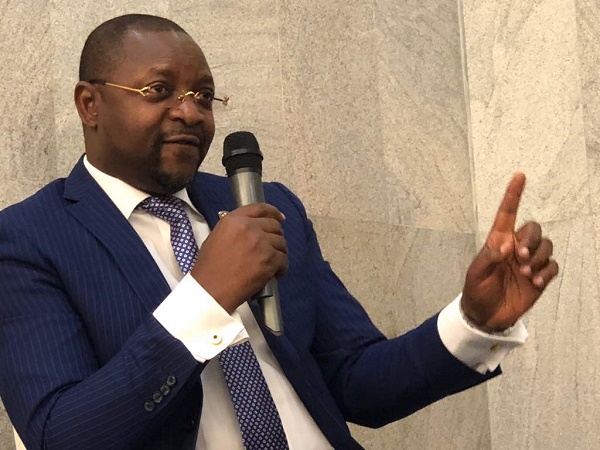Two weeks ago, the senate and the house of representatives revisited the electoral act amendment bill they had earlier passed.
This was prompted by an outrage that stemmed from the version passed by the senate in July.
While the house of representatives had adopted the electronic transmission of electoral results “where practicable”, the senate empowered the Nigerian Communications Commission (NCC) to determine where the use of electoral transmission of results could be used.
Many Nigerians condemned the provision and asked the senate to adopt the same position as the lower legislative chamber.
Advertisement
Following the outrage, the senate empowered the Independent National Electoral Commission (INEC) to determine the mode through which election results could be transmitted.
Both chambers also adopted direct primary for all political parties in picking their candidates for any election.
Apart from disagreeing on the mode of transmitting election results, there are other areas where the lower and upper legislative chambers differed on the electoral bill.
Advertisement
Here are some differences in the bills passed by the house and senate, as collated by Policy and Legal Advocacy Centre (PLAC).
| Clause | House of representatives | Senate |
|---|---|---|
| 1
Establishment
|
(1) The Independent National Electoral Commission as established by the constitution (in this Bill referred to as “the commission”) |
(1) The Independent National Electoral Commission as established by section 153 of the constitution (in this Bill referred to as “the commission”) |
| 5 Advertisement Annual
|
The Commission shall keep proper accounts and records in respect of each financial year and shall cause its accounts to be audited as soon as possible after the end of each financial year as required by law. |
(1) The Commission shall submit to the Ministry of Finance not later that 31st of August in each financial year, and estimate of its expenditure, income and payments during the next financial year. (2) The Commission shall keep proper accounts and records in respect of each financial year and shall cause its accounts to be audited as soon as possible after the end of each financial year by the Auditor-General of the Federation. |
| 15
Power to |
The Commission shall cause a voters’ register for each State to be printed, reproduced, copied, duplicated or saved in electronic format and any person or political party may obtain from the Commission, on payment of such fees as may be determined by the Commission, a certified copy of any voters’ register for the State or for a Local Government or Area Councilor registration area within it |
The Commission shall cause a voters’ register for each State to be printed, reproduced, copied, duplicated or saved in electronic format and any person or political party may obtain from the Commission, on payment of such fees as may be determined by the Commission, a certified copy of any voters’ register for the State or for a Local Government or Area Council or registration area polling units within it |
| 16
Power to print |
(3) Any person who contravenes subsection (2) commits an offence and is liable on conviction, to a fine not more than N100,000.00 or imprisonment for a term not more than one year or both |
(3) Any person who contravenes subsection (2) commits an offence and is liable on conviction, to a fine not more than N500,000.00 or imprisonment for a term not more than one year or both |
| 35 Advertisement Death of a |
Provided that in the case of Presidential or gubernatorial or Federal Capital Territory Area Council election, the running mate shall continue with the election and nominate a new running mate |
Provided that in the case of Presidential or gubernatorial election, the running mate will continue with the election and nominate a new running mate. |
| 42
Ballot boxes |
(3) The Polling Agents shall be entitled to be present at the distribution of the election materials from the office to the polling booth |
(3) The Polling Agents shall be entitled to be present at the distribution of the election materials and voting devices from the office to the polling booth |
| 48 Advertisement Accreditation |
2) To vote, the Presiding Officer shall use a smart card reader that may be prescribed by the Commission, for the accreditation of voters, to verify, confirm or authenticate the particulars of the intending voter in the manner prescribed by the Commission. (3) Where a smart card reader deployed for accreditation of voters fails to function in any unit and a fresh card reader is not deployed, the election in that unit shall be cancelled and another election shall be scheduled within 24 hours: Provided that the result of the election in that polling unit will substantially affect the final result of the whole election and declaration of a winner in the Constituency concerned |
(2) To vote, the Presiding Officer shall use a smart card reader or any other technological device that may be prescribed by the Commission, for the accreditation of voters, to verify, confirm or authenticate the particulars of the intending voter in the manner prescribed by the Commission. (3) Where a smart card reader or any other technological device deployed for accreditation of voters fails to function in any unit and a fresh card reader or technological device is not deployed, the election in that unit shall be cancelled and another election shall be scheduled within 24 hours. If the commission is satisfied that the result of the election in that polling unit will substantially affect the final result of the whole election and declaration of a winner in the Constituency concerned |
| 49
Right to |
A candidate or a Polling Agent may challenge the right of a person to vote on such grounds and in accordance with such procedures as are provided for |
A candidate or a Polling Agent may challenge the right of a person to vote on the ground that the person is not a registered voter in the polling unit. |
| 51 Advertisement Conduct of |
(2) Voting at an election under this Bill shall be in accordance with the procedure determined by the Commission, which may include electronic voting. (3) The Commission may consider electronic transmission of results, provided that the national coverage is adjudged to be adequate and secured by the Nigerian Communications Commission (NCC) and approved by the National Assembly |
(2) Voting at an election and transmission of result under this Bill shall be in accordance with the procedure determined by the Commission |
| 61
Counting of |
(6) A Presiding Officer who wilfully contravenes any provision of this section commits an offence and is liable on conviction to a (fine not more than N100,000.00 or imprisonment for a term of at least six months |
6) A Presiding Officer who wilfully contravenes any provision of this section commits an offence and is liable on conviction to a fine not more than N500,000.00 or imprisonment for a term of at least six months |
| 74 Advertisement Forms for use |
3) A Presiding Officer who intentionally announces or signs any election result in violation of subsection (2) commits an offence and is liable on conviction to a fine of N200,000.00 or imprisonment for a term of at least one year or both |
(3) A Presiding Officer who intentionally announces or signs any election result in violation of subsection (2) commits an offence and is liable on conviction to a fine of N1,000,000.00 or imprisonment for a term of at least one year or both |
| 85
|
(1) A political party seeking to nominate candidates for elections under this Bill shall hold direct primaries for aspirants to all elective positions, which may be monitored by the Commission. (2) The procedure for the nomination of candidates by political parties for the various elective positions shall be by direct primaries. (9) Notwithstanding the provisions of this Bill or rules of a political party, an aspirant who complains that any of the provisions of this Bill and the guidelines of his political party has not been complied with in the selection or nomination of a candidate of the political party for election, may apply for redress to the Federal High Court of State or FCT within whose terrirtorial jurisdiction the election was conducted |
(1) A political party seeking to nominate candidates for elections under this Act shall hold direct or indirect primaries for aspirants to all elective positions, which may be monitored by the Commission. (2) The procedure for the nomination of candidates by political parties for the various elective positions shall be by direct or indirect primaries. (9) Notwithstanding the provisions of this Bill or rules of a political party, an aspirant who complains that any of the provisions of this Bill and the guidelines of his political party has not been complied with in the selection or nomination of a candidate of the political party for election, may apply for redress to the Federal High Court |
Add a comment







